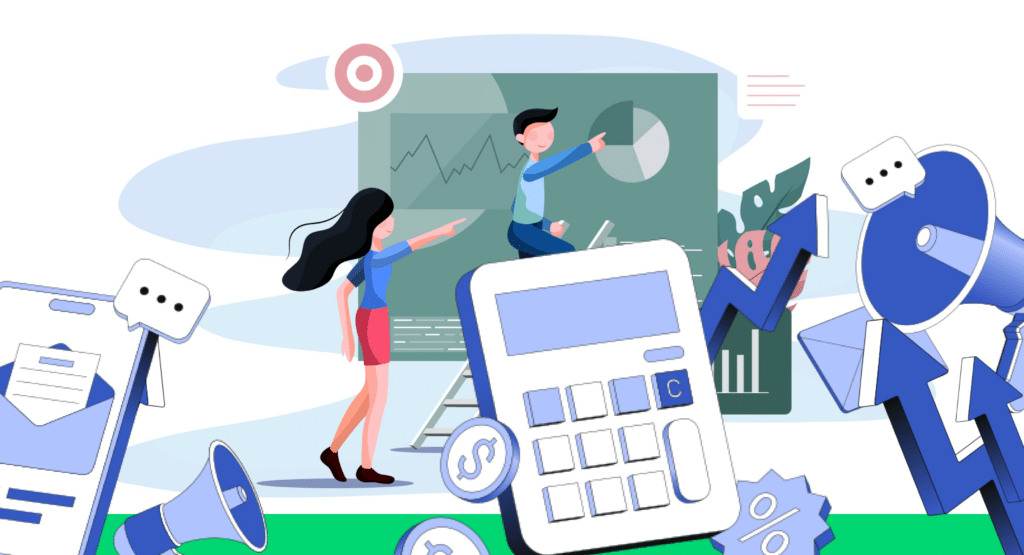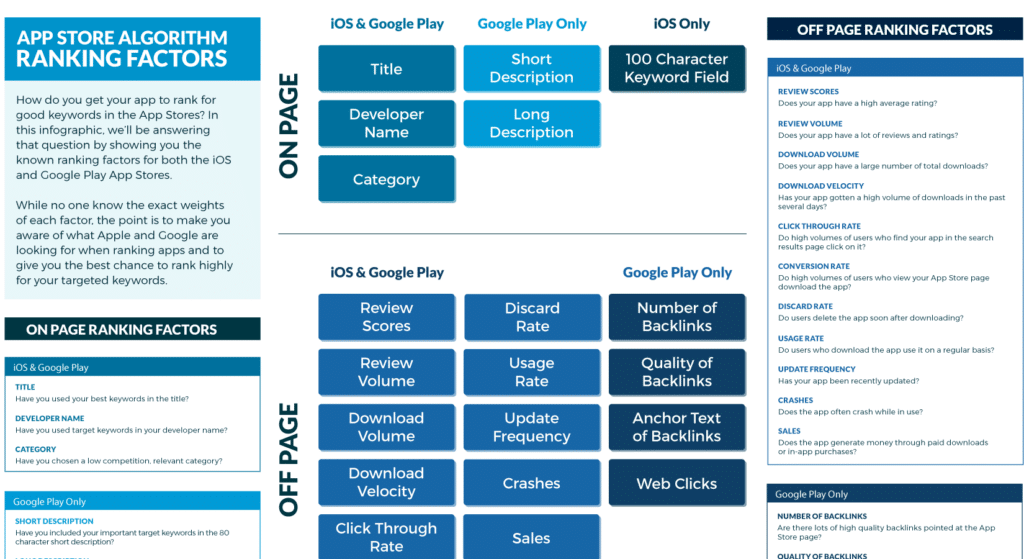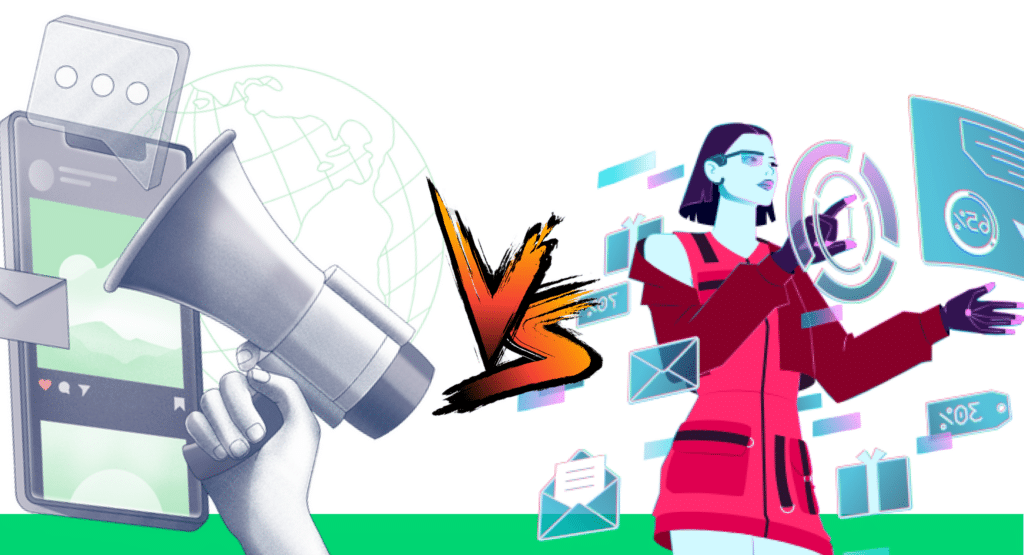
The Ultimate Guide To Marketing Campaigns (With Examples!)
Learn how to plan, execute and analyze a successful marketing campaign.


On page ranking factors are variables you have direct control over like your keyword field and title.
Title: Use your best keywords in the title – keywords used in the title will often rank much higher than those used anywhere else. You only get 50 characters to work with for both stores so use them carefully.
Developer name: If possible, use your keywords in your developer name when creating your iOS or Google Play developer account. These keywords will help your apps rank for more search terms.
Category: You’ll want to make sure you choose a low competition category for your app that’s also still relevant.
To determine how competitive a category is, use App Annie combined with a spreadsheet to plot the top 10 or so apps in each category on a grid. Put the “overall store rank” on the Y access and the “category rank” on the X axis. The graph should look like this:
The steeper the line, the less competitive the category is.
Short description: Keywords used in the short description will often rank higher than keywords used in the long description so use it wisely.
Long description: Make sure to include every keyword you plan on ranking for in your long description.
100 character keyword field: Use any keywords not used in your title here.
These are factors you don’t have direct control of but can still influence in some ways. For example, you can’t set your review scores but publishing a good app will lead to more positive reviews.
Review scores: Having a good app will naturally pull in good reviews so above all else make sure your app doesn’t suck!
Review volume: Set up a review prompt with Apptentive to ask for reviews at key moments within the app to encourage more users to leave positive reviews. More reviews = higher rankings as long as they are mostly positive.
Download volume: Consider using other promotion methods like paid ads, influencer marketing, or PR to drive more downloads. The more total downloads you have, the more the app store ranking algorithms will reward you with organic downloads.
Download velocity: Try to coordinate your app promotion in bursts. This will help achieve a higher download velocity at certain moments which can help drive more downloads.
Click through rate: Your title and icon need to work together to convince users to click through to the app page.
Conversion rate: Make sure to optimize your app store page with an attractive icon, persuasive screenshots, and a compelling description.
Discard rate: Ensure your app has lasting value. Apps that are quickly deleted will rank lower in app store search results.
Usage rate: Build apps that users will want to use on a regular basis. Consider setting up notifications or an incentive program to keep users coming back for more.
Update frequency: Keep your app fresh with regular updates.
Crashes: Bug test extenively before launching. A buggy app that crashes often will rank lower.
Sales: While tough to say if this is a ranking factor or not, it would make sense if it is. Since neither Apple nor Google makes money from in-app ads (unless you’re using an ad network owned by one of them), it would be in their best interest to promote paid apps or apps with in-app purchases since these will actually generate revenue for them.
Number of backlinks: Make sure outreach on the web is part of your marketing strategy. Doing traditional SEO towards your app page will help it rank higher in Google Play and in regular Google web searches.
Quality of backlinks: When promoting online, avoid targeting spammy or low quality sites.
Anchor text of backlinks: Having backlinks pointing towards your app using certain keywords as anchor text may help you rank higher for those terms. While this is hard to control, if you have the opportunity to choose what a link to your app store page looks like, consider using one of your target keywords. Just make sure you don’t over do it.
Web clicks: Do lots of people click through to your app using link around the web? Google will likely reward apps which bring users to the Google Play Store from other websites.

Learn how to plan, execute and analyze a successful marketing campaign.

Understand the key differences between advertising and marketing.